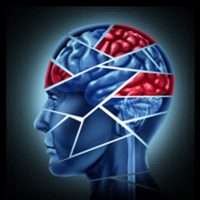What Is A Traumatic Brain Injury?

When you are in an accident, and you sustain impact to the head, the consequences can be immediate and devastating. But they can also be long term, even permanent, and just as devastating. Injuries to the brain can be life threatening, and can alter the way someone lives the remainder of their lives.
Brain Injuries Defined
Injuries to the brain, called traumatic brain injuries (TBI), should first be differentiated from cognitive or emotional problems many people may have after an accident.
For example, if you are in an accident and you break your leg, you may have depression, anxiety, sadness, or an alteration in your personality. Your brain is fine, and uninjured, and those feelings will likely subside with further healing—those are just natural emotional and mental reactions to sustaining an injury.
Brain Bleeds
But with a TBI the brain itself sustains impact and is injured. Immediate impact to the brain can be devastating; a brain can bleed very slowly—so slow that initial X-rays in a hospital may detect nothing wrong. In fact, someone who sustains a brain injury may, at first, feel absolutely fine.
But the person doesn’t realize that his brain is slowly bleeding; that blood eventually puts enough pressure on the brain to kill the victim. That’s why in any accident involving head trauma, a victim should be monitored and watched to make sure her condition does not worsen.
Symptoms of Long Term Damage
Of course, not all TBIs are deadly. In many cases, the victim may sustain long term and permanent cognitive difficulties. The brain simply doesn’t work the way that it did before the accident.
Symptoms of a TBI can be hard to detect, because you or those around you may just think you’re “having a hard time” after the accident—you may chalk your symptoms up to being out of work, or being immobile.
Symptoms of TBI can include forgetfulness, loss of short or long term memory, mood swings, personality changes, anger, or erratic behavior. The memory problems can be particularly devastating; almost every job requires you to utilize your short and long term memory.
In very serious cases, a victim may never be able to be at home alone again, for fear they will turn a stove on and never turn it off, or that they will leave the house and not know where they are going. Their memory loss could mean they can never safely watch over minor children anymore.
Drastic changes in personality and affect can also permanently alter the nature of personal relations with significant others.
Improvements
In many cases, the symptoms of TBI do get better with time—but that is only with the proper therapy and medical care. You will have to show that you made an effort to get better, and that you followed doctors advice in trying to improve your cognitive functioning.
Have you suffered a brain injury in an accident? Call the West Palm Beach personal injury attorneys at Pike & Lustig today to see how we can help.
Sources:
ninds.nih.gov/health-information/disorders/traumatic-brain-injury#:~:text=Traumatic%20brain%20injury%20(TBI)%2C,skull%20and%20enters%20brain%20tissue.
cdc.gov/traumaticbraininjury/index.html
